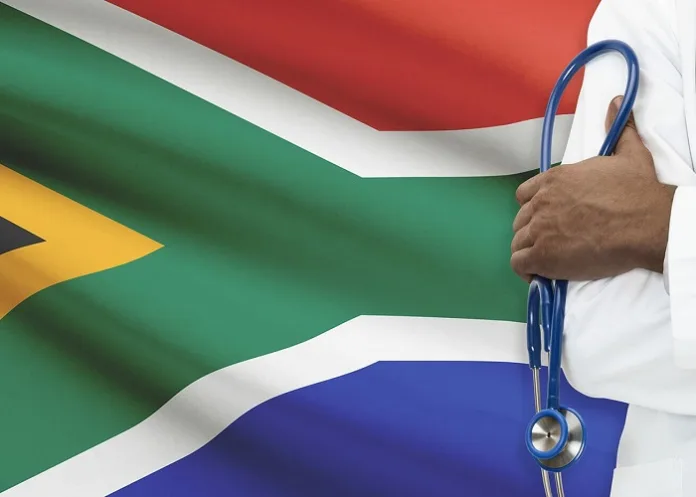Despite the NHI Bill having finally made it through the National Assembly last week – and having taken more than four years to even get that far – it is unlikely to come to fruition any time soon, according to Phillip de Wet, writing in News24.
How it is envisaged to function
The system will pool a large amount of money, then use it to buy healthcare services. Some of its suppliers will be private hospitals or specialists, many will be state-run clinics. Where you are actually treated will be determined by the point-of-entry healthcare provider, probably a GP or local clinic, where you register.
Right now, the official plan is for two phases. The first, due to start this year and run until 2026, is supposed to prepare the ground and start delivering only for selected groups: children, women, the elderly, and people with disabilities. For them, healthcare services are supposed to be bought from the private sector.
Phase 2, due to run until 2028, is supposed to broaden the contracting of health services from private providers beyond those group and set up the “mandatory pre-payment” system – the tax everyone has to pay to fund the NHI.
By 2029 everyone with an income is supposed to be paying into the NHI, and everyone is supposed to be eligible for treatment under it.
Everyone (with papers) will be covered
Once the NHI is fully operational, it is due to offer coverage to everyone in South Africa except “asylum seekers or illegal foreigners”.
This group, says the Bill, may receive only emergency medical care and help with “notifiable conditions of public health concern”, such as TB, or as the coronavirus was declared in the early days of the Covid-19 pandemic.
You’ll have to provide proof of identity to show you are not an ineligible foreigner – after a registration process that is expected to include fingerprints or other biometrics.
Children of undocumented foreigners will qualify for a higher level of healthcare, though not full coverage; they will get the “basic healthcare services” guaranteed in the Constitution.
Free at the point of care…
NHI services are supposed to be “free at the point of care”, as other countries refer to zero payment at hospitals or clinics.
Actual payment will be via tax, though not a single NHI tax that could, for instance, be used to see how much value you get from the system and hold it accountable.
The underlying philosophy is one of “social solidarity”, in which the richer you are, the more you pay.
Right now the anticipated forms of tax are:
• general, with money the government already collects being shifted to the NHI;
• from the medical scheme tax credits individuals can currently claim when they belong to a medical aid;
• payroll tax, paid by companies, and;
• a direct addition to personal income tax
All of that is due to flow into the NHI system from Parliament via an annual appropriation.
The NHI is specifically not supposed to pay for healthcare services in two situations. One is where a doctor shows that the treatment a patient wants is not medically necessary. The other is where “no cost-effective intervention exists for the healthcare service”.
What is, and isn’t, cost-effective medicine will be determined by a Health Technology Assessment Agency. Until that is created, the health minister’s advisory committee will do the job.
No going straight to a specialist
You must register at a GP or “health establishment”, probably a local clinic – your provider for healthcare, unless that GP or clinic refers you for specialised treatment.
If you are referred to another facility or a specialist, you must follow the “prescribed referral pathways”. If you don't, you are no longer eligible for NHI-funded care.
If your primary provider doesn’t refer you as you think appropriate, or you’re unhappy with him/her, you’ll have to lodge a formal complaint about that before you go elsewhere.
You can pay for anything NHI doesn’t fund
The system includes a pay-to-play element. Foreigners are supposed to pay for medical services in cash or via insurance – as will anyone for anything that falls outside the scope of the NHI, any services the NHI doesn’t include or doesn’t consider medically necessary.
That is where, what are now comprehensive medical aids, are supposed to come in. They will be able to act as gap-fillers and insurers that cover higher levels of care – but nothing else. They will be prohibited from also covering services offered by the NHI system.
See more from MedicalBrief archives:
NHI will cover Health Market Inquiry recommendations – Crisp
Parliament passes NHI Bill but long road to implementation
NHI ‘will lead to emigration, corruption’

